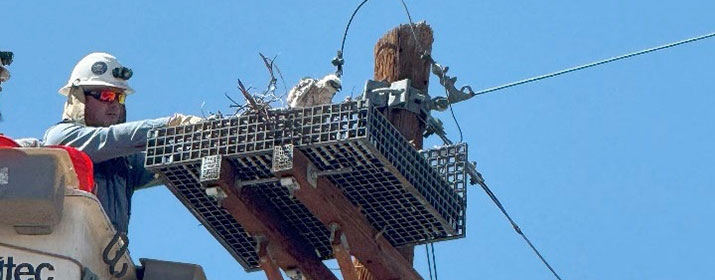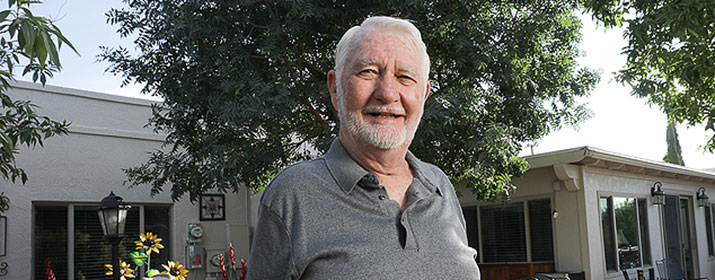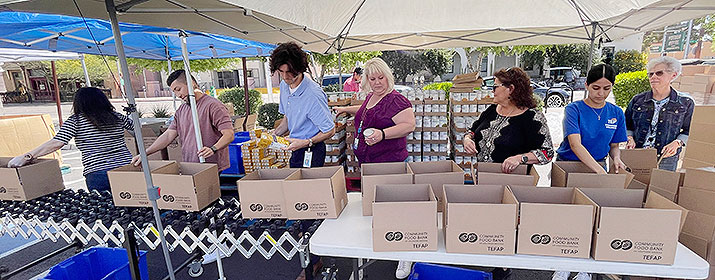
Front line crews successfully relocated a red-tailed hawk nest to save three fledglings, highlighting Tucson Electric Power’s commitment to raptor protection.
Our Raptor Protection Program kicked into action when the nest, home to three fledglings, was discovered on a switching pole on a soon-to-be energized 46kV line.
“With very little time to safely relocate the nest, quick-thinking and strong collaboration was critical,” said Aaron Fleming, Vegetation Maintenance Planner.
In an effort to keep birds and animals safe from electrical hazards, TEP takes significant steps to protect wildlife from electrical equipment, including installing bird guard materials on electrical equipment.
In the case of the fledglings, we turned to Ash Hartigan, a University of Arizona Wildlife Biologist who works with TEP through a longstanding partnership between the company and the UA. Hartigan worked with our team to develop a relocation plan.
Initial efforts focused on a nearby pine tree with an unoccupied nest, but the tight space prevented access for our large trucks.
TEP Crew Leader Aaron Roethle stepped in with an innovative solution: install a nest platform on a nearby static pole. Aaron swiftly coordinated with teams from the Warehouse to secure the necessary materials and platform, and his team installed it on the pole.
With guidance from Hartigan, the team carefully relocated the fledglings to their new nest site.
“In a heartwarming conclusion to the effort, the mother hawk returned just four hours later, successfully reuniting with her young at their new home. The project is a shining example of TEP’s dedication to environmental stewardship and teamwork in the face of logistical challenges,” said Aaron.
TEP recently showcased its raptor protection efforts during a Western Energy Institute Business Acumen Tour. About 45 professionals from utilities across the western U.S. learned about TEP’s proactive approach to avian safety and environmental stewardship during the April visit.
You can help. You can report raptor habitats at TEP Customer Care or contact us at 520-623-7711. Calls to TEP will result in an immediate referral to a TEP employee and a University of Arizona biology consultant, who will do a site assessment to identify raptor activity and potential risks to raptor nesting and roosting areas.






